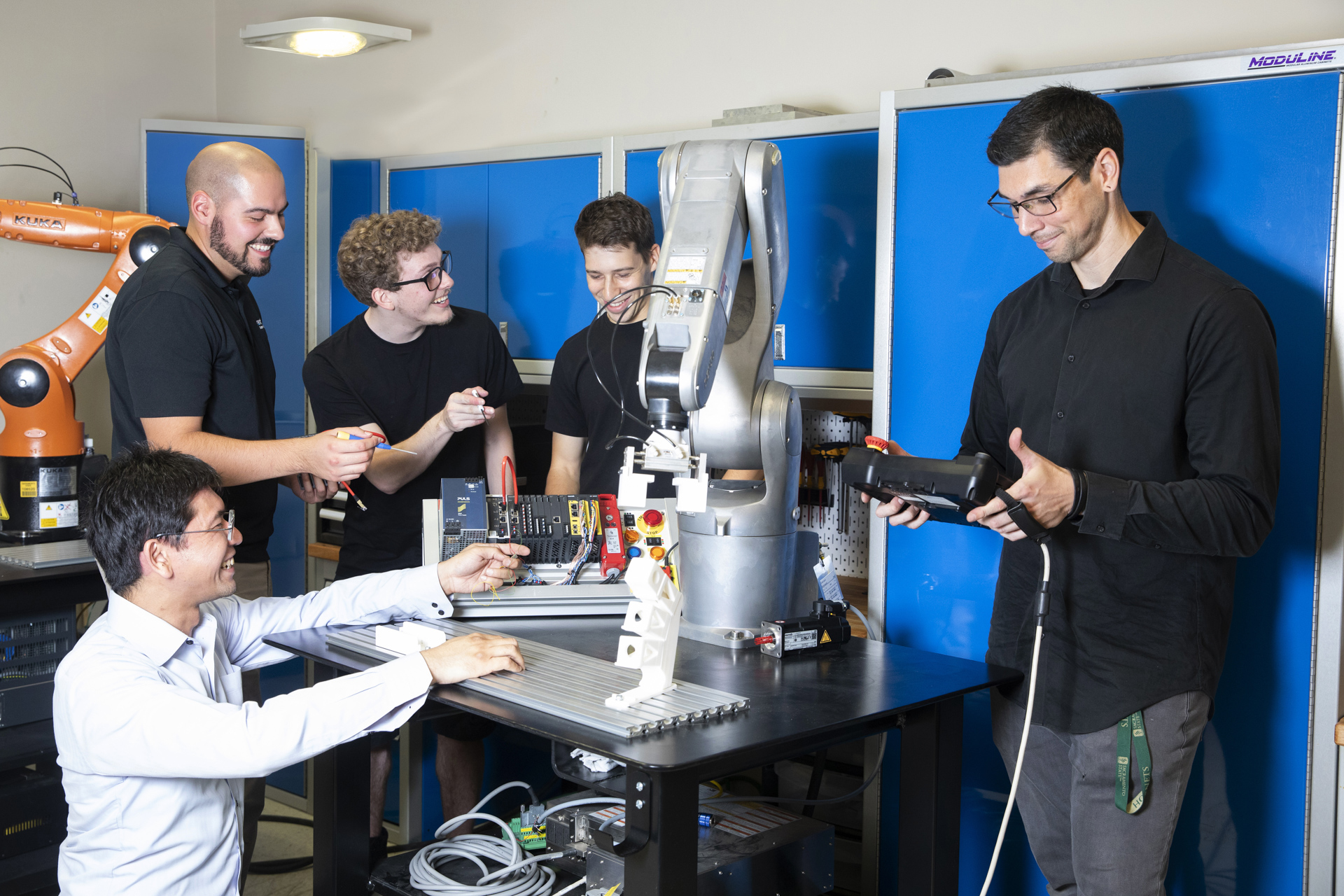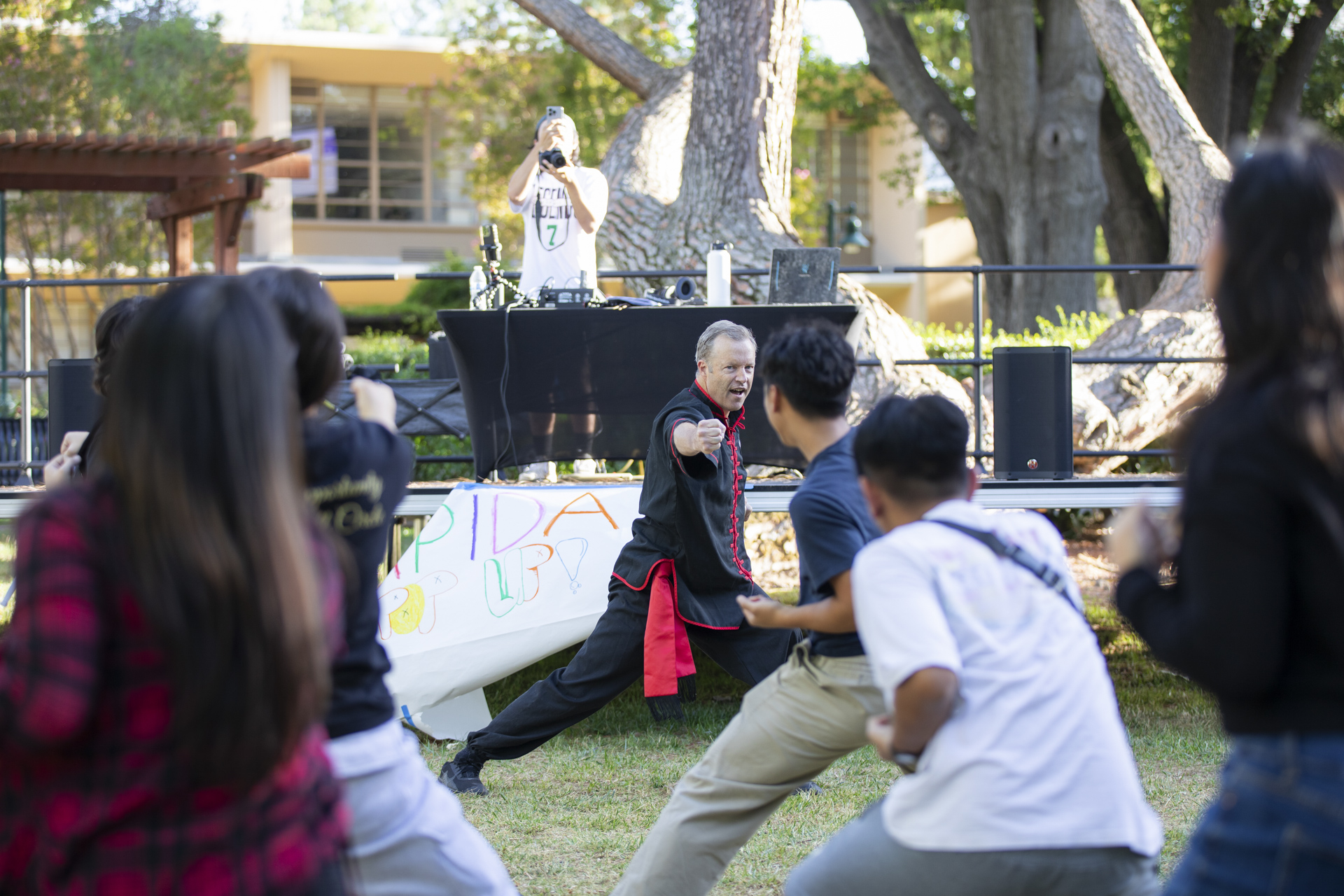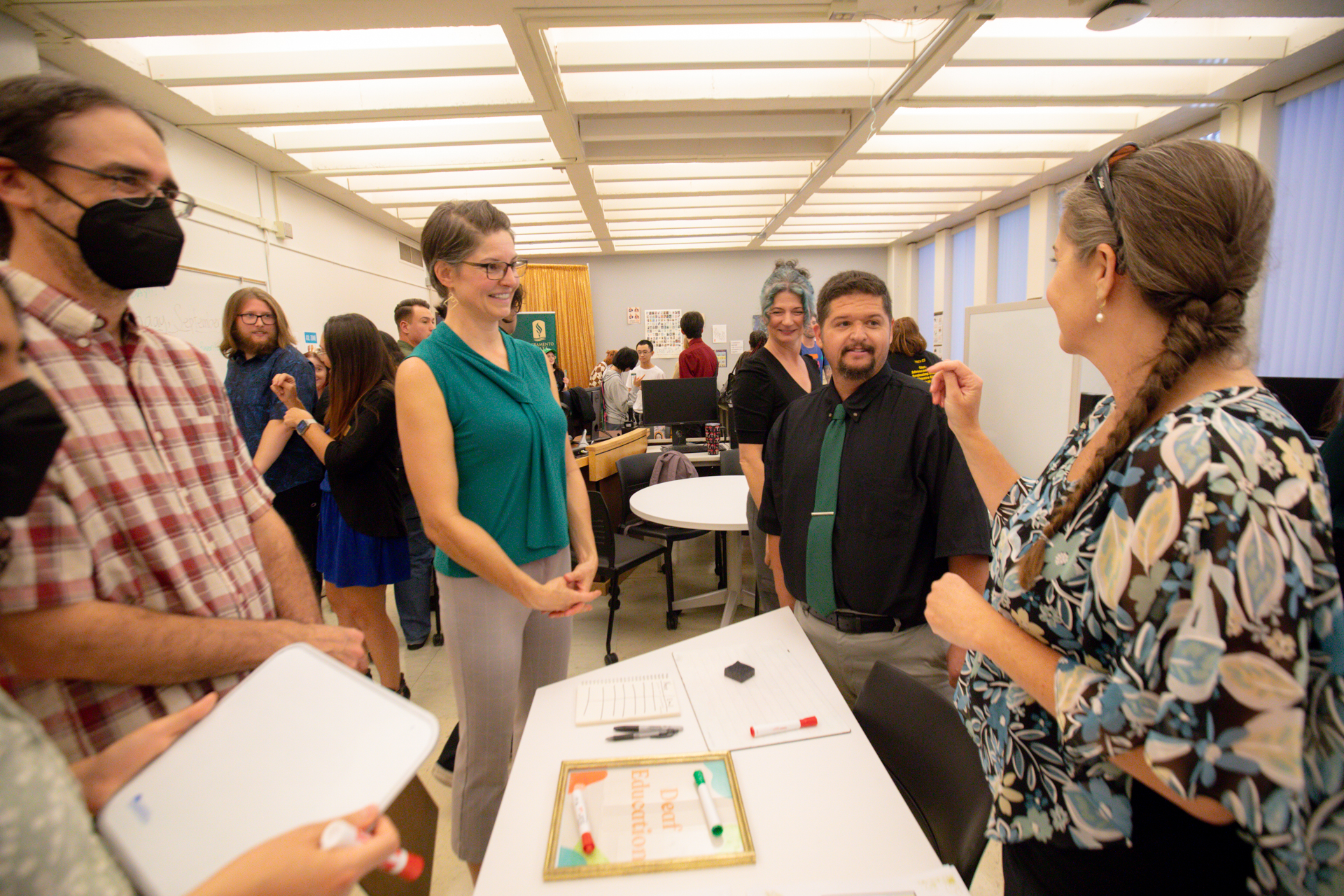Story Content
Student theater production puts audience at the center of promoting social change
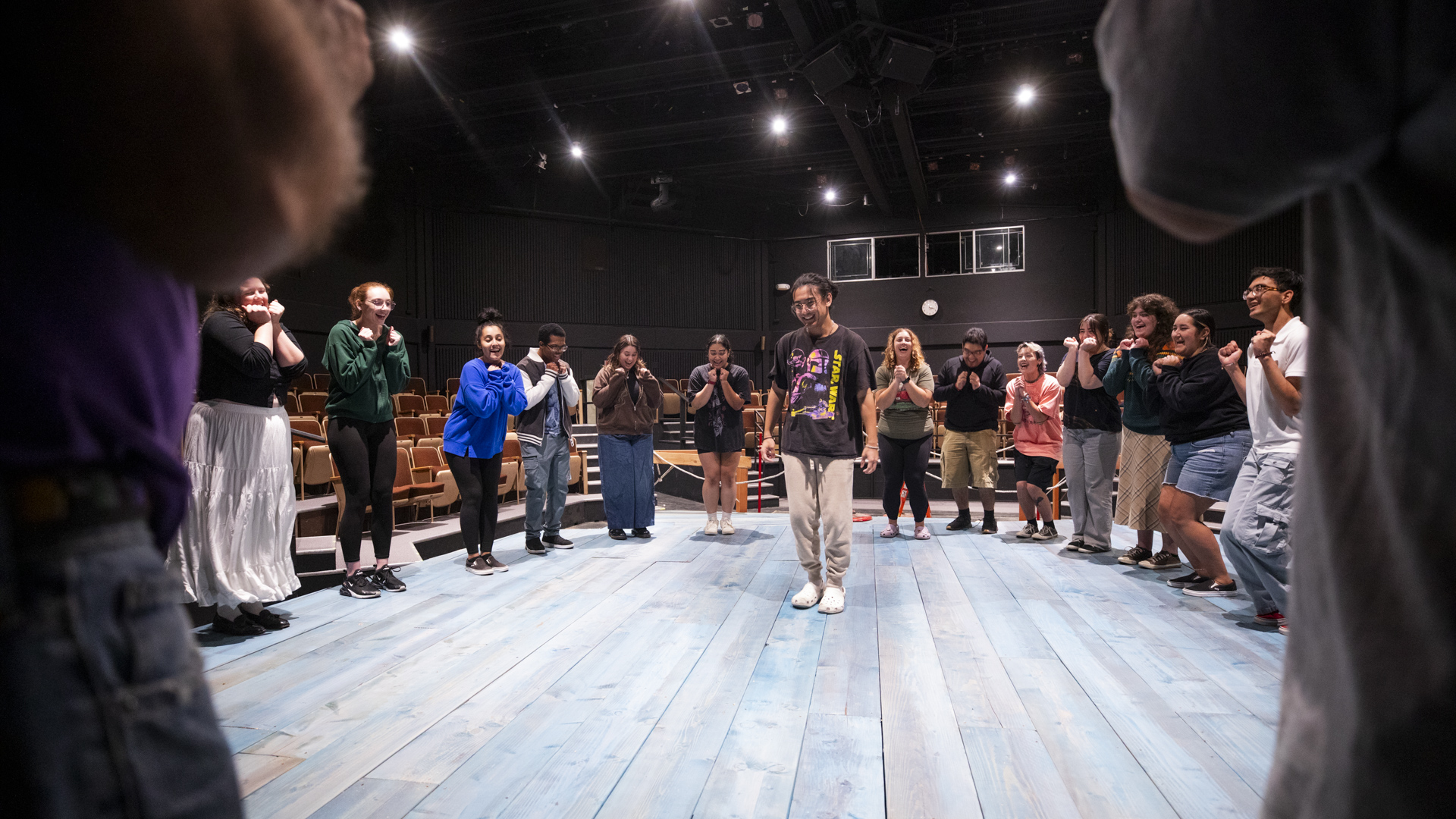
October 09, 2024
Art frequently seeks to move its audience to enact social change. This week at Sacramento State, a student theater production will literally move its audience. Onto the stage. To enact, or at least act out, social change.
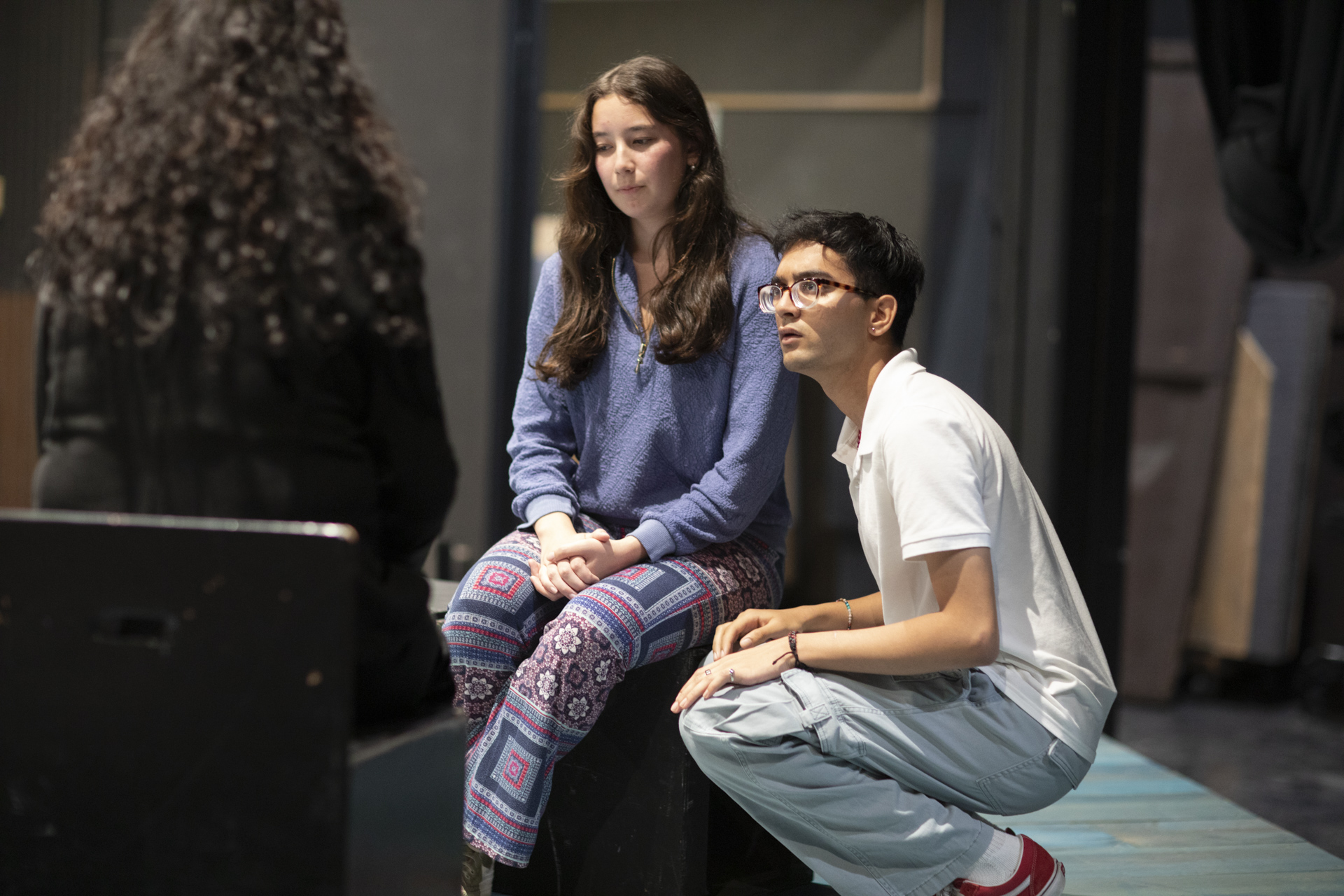
Sacramento State students Jouelle Kimura, center, and Rohan Bains rehearse for the "Forum Theatre Festival" on Sept. 18. The students have spent the past several weeks writing and developing the short plays, called "anti-models," that will be featured in the production. (Sacramento State/Andrea Price)
The “Forum Theatre Festival,” running Oct. 10-13, will bring a unique style of performance to Sac State, where the student actors have played a key role in developing its content and where audience engagement is at its core.
“Forum Theatre” is a central element in the theater tradition known as “Theatre of the Oppressed,” developed by Augusto Boal in Brazil in the 1970s. It uses the stage to promote social and political change by transforming the audience from passive spectators to active “spect-actors.”
It’s a tradition that festival director and Professor of Theatre and Dance Erin Kaplan has been active in for two decades and was excited to bring to Sac State.
“With the upcoming election and everything going on in the world right now, creating opportunities for students, faculty, staff and members of the community to actively engage in changing the realities of oppression on stage, in a rehearsal for revolution, is essential,” Kaplan said. “I hope it will inspire people to see and own their own power and potential for larger-scale societal change.”
The festival does not follow an established, pre-written script. Instead, students have spent the last several weeks developing several short plays known as “anti-models” that address issues like sexual assault, reproductive rights, mental health and racism.
Each anti-model features a protagonist, often a member of an oppressed group, who is prevented from getting something they want by an oppressor. Another actor plays a potential ally who conceivably could help but out of self-interest does not.
“They are learning how hard it can be to someone else. Young men are learning how terrifying it can be to be a young woman. White women are learning how hard it can be to exist in a Black or brown body in this country.” -- Erin Kaplan, festival director and professor of Theatre and Dance
When an anti-model is over, the “Joker,” or facilitator – Kaplan and her two student co-Jokers, Nova Walter and Meg Greer – will ask the audience how they felt about what happened and offer any audience member who wants to change the events on stage to become a spect-actor. That person will join the play as the protagonist to try to break the oppression. The Joker will then return to the audience to discuss the intervention and offer the audience another opportunity to spect-act.
“This theater is really just a jumping off point for a conversation about how to deal with oppression in the real world,” said Kaplan.
For the student actors and production team, rehearsals have been a mix of joy and challenge. Many of the topics are based on the personal and sometimes traumatic experiences of cast members. That has been especially impactful for students playing the role of an oppressor.
“They are learning how hard it can be to someone else,” Kaplan said. “Young men are learning how terrifying it can be to be a young woman. White women are learning how hard it can be to exist in a Black or brown body in this country.”
During a September rehearsal, third-year Theatre and Dance major Rohan Bains worked with his fellow actors on an anti-model about abortion rights, something he said had affected members of his family. Participating in the Forum Theatre Festival provides the opportunity to shed light on topics that matter to him, he said.
“Abortion rights, women’s rights, LGBTQ+ rights, trans rights – these are all really important things to me, they mean a lot to me,” Bains said. “I think that this platform gives me the ability to share not just my voice, but that we have a collective voice.”
As with any student theater production, students also gain practical skills that prepare them for their careers, whether as an actor or behind the scenes. Bains, for example, said the nature of the festival specifically tests actors’ improvisation skills, requiring that they learn to react to what the audience members bring onto the stage.
For third-year Theater major Nova Walter, who is not only serving as a co-Joker but also the production’s stage manager, the dual roles have meant being immersed in the production more deeply than if he was doing just one or the other.
“I've been wanting to stage-manage for a while, just because I normally act,” said Walter, who is on track to graduate in spring 2025. “I always have a stage manager there, and I was very curious about what that world is like, so it's cool that I get to experience it now.”
The students’ experience was further enhanced when, in September, Kaplan brought in Geo Britto, a Brazilian practitioner of Theatre of the Oppressed and Joker for Augusto Boal for over thirty years. Britto participated in two rehearsals and led a free, all-day workshop on the practice for faculty, staff and students.
Kaplan hopes that the Forum Theatre Festival’s unique interactive format helps audiences not only understand theater’s ability to be a vehicle for change, but also their own.
“I want them to be inspired to make changes when they see injustice and to be in solidarity with those who experience oppression in different ways than they do,” she said. “To be in solidarity with is not to be a ‘performative ally’ or a ‘supporter,’ but to tie up your existence with others. To be willing to risk something that matters to you is to be in solidarity, and that’s what Theatre of the Oppressed hopes to cultivate.”
For more information about the Forum Theatre Festival, including performance dates and times, and to purchase tickets, visit the Department of Theatre and Dance website.
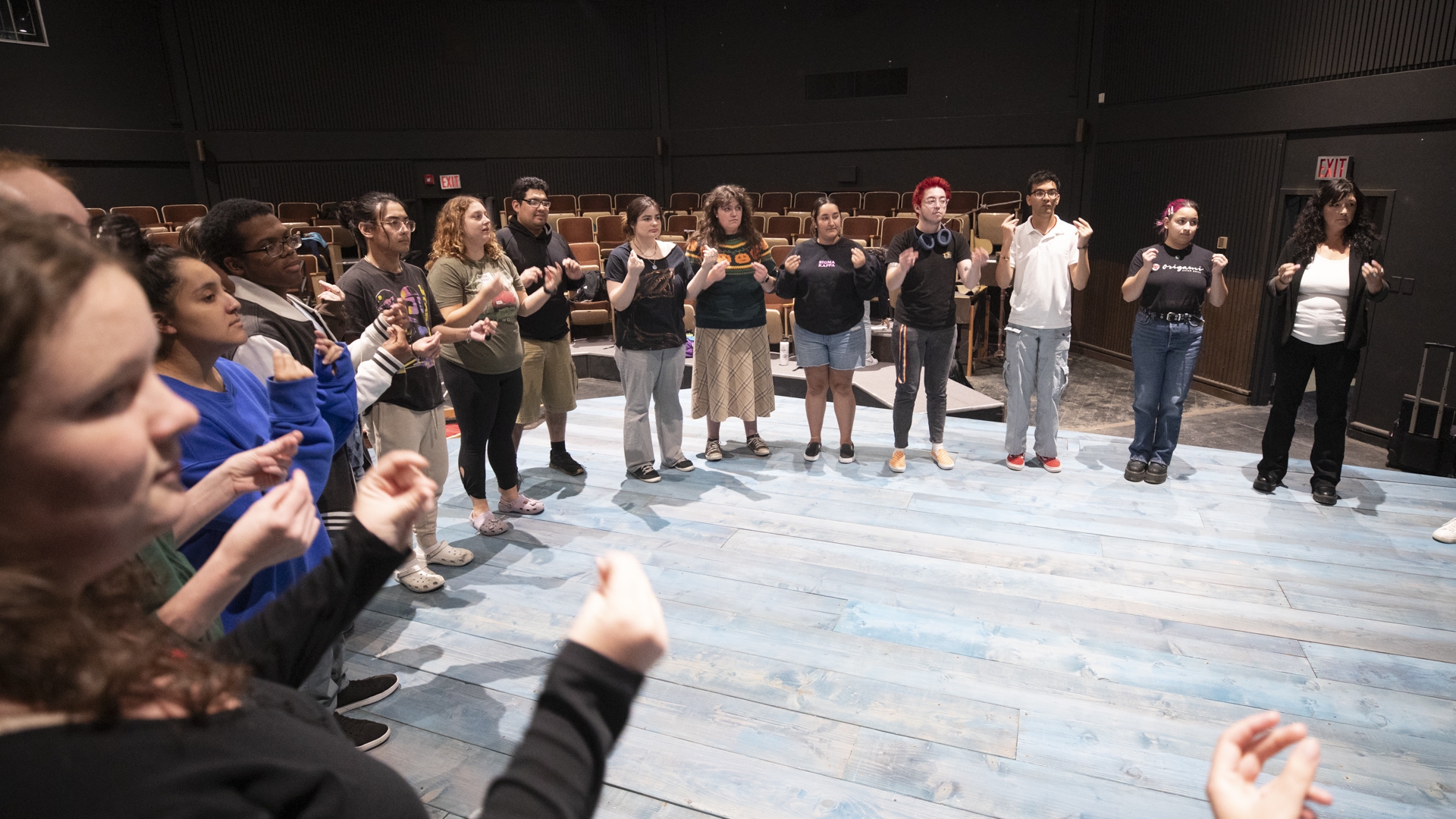
Media Resources
Faculty/Staff Resources
Looking for a Faculty Expert?
Contact University Communications
(916) 217-8366
communications@csus.edu
